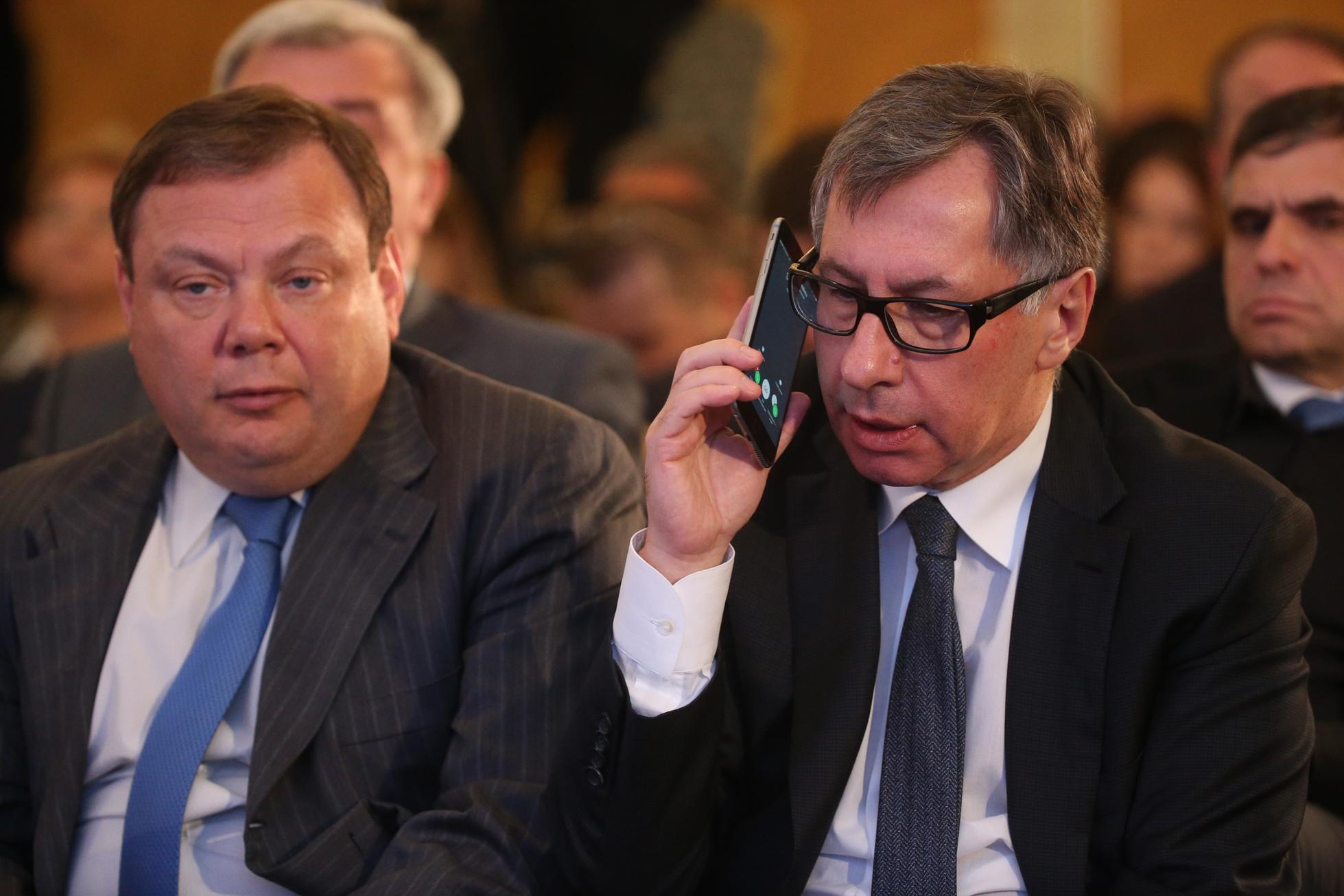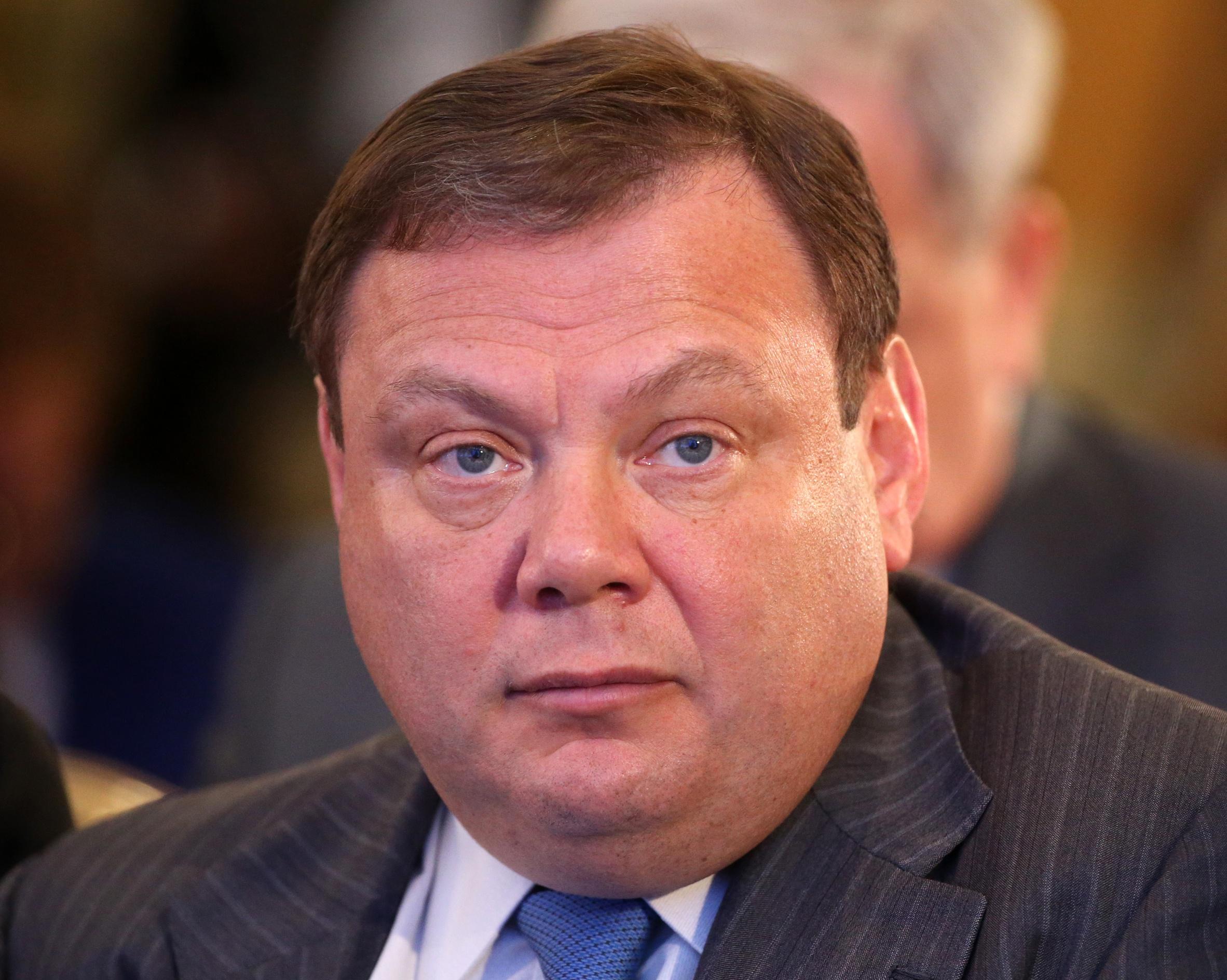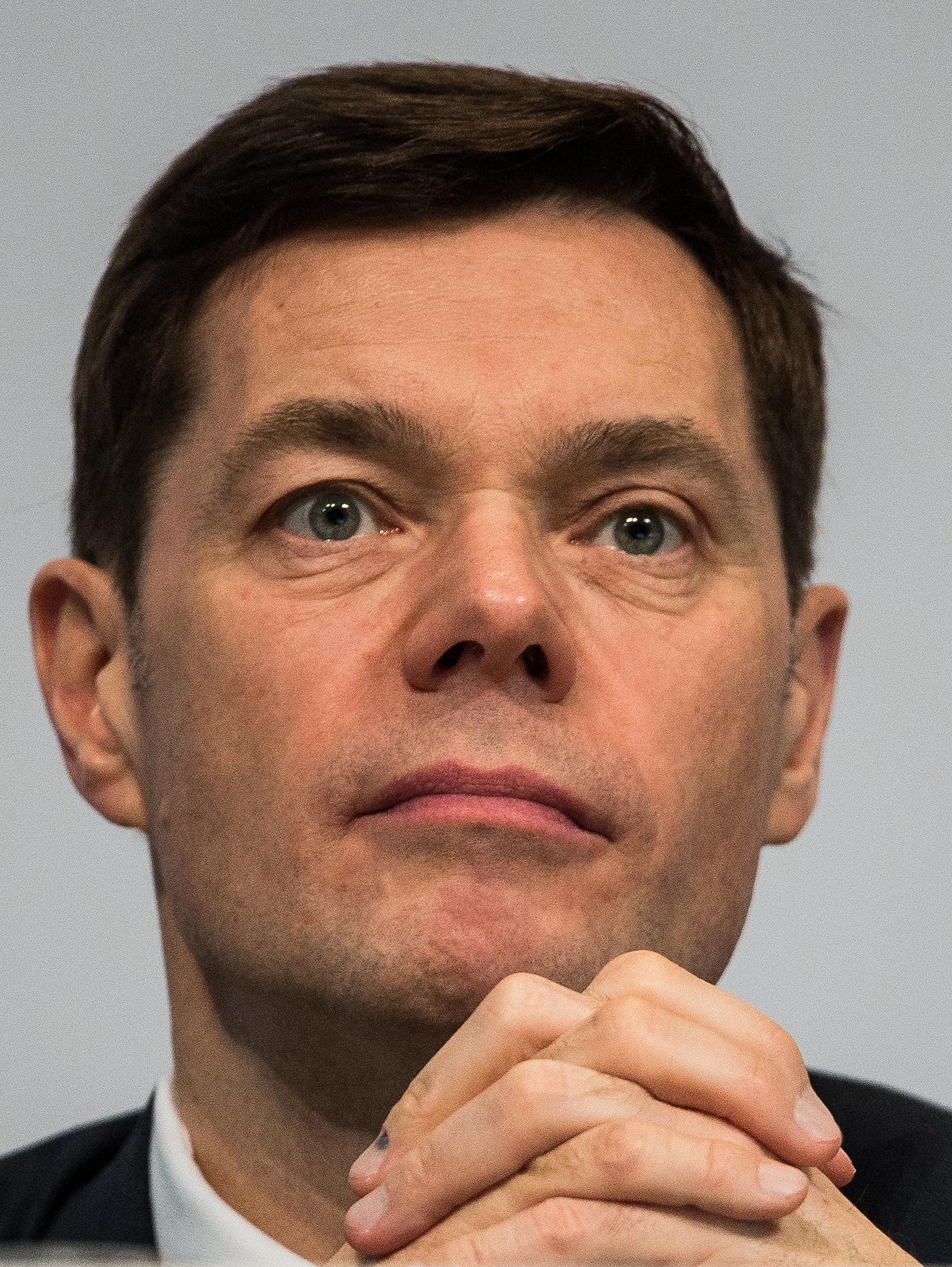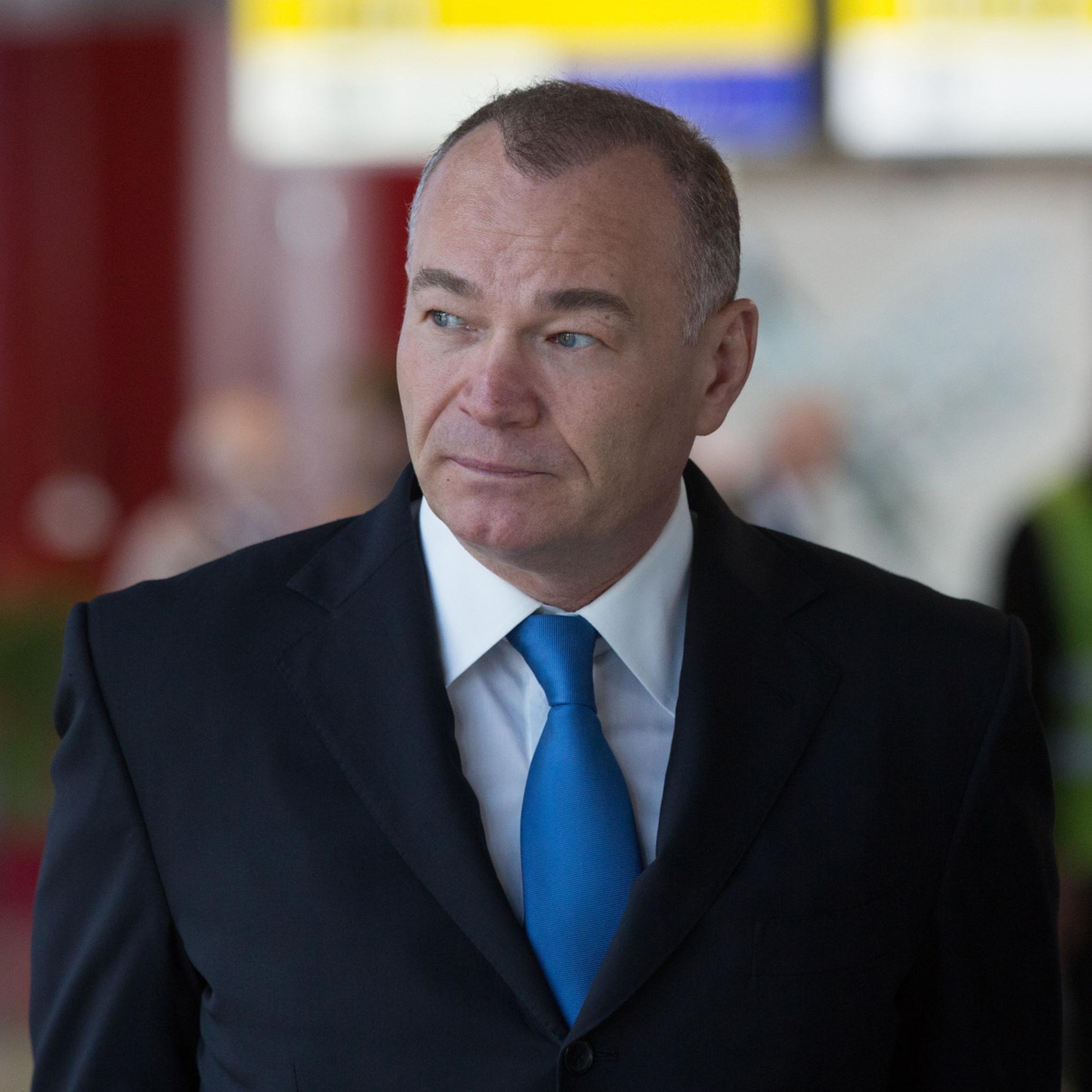Five of the country’s magnates have been slapped with economic restrictions since Putin’s invasion of Ukraine on February 24, making a total of 16.

Just hours after Russia began its invasion of Ukraine last week, President Vladimir Putin summoned to the Kremlin 37 of the country’s top business leaders, including at least 12 billionaires. Two of the billionaires, Mikhail Gutseriev and Suleiman Kerimov, were under U.S. or European Union sanctions.
The purpose of the meeting was to inform them of the rationale behind the attack, with Putin claiming he had no choice but to invade and that he understood Russia would likely be hit by new sanctions. After Putin spoke, he reportedly left the room without allowing any of the businesspeople to comment or ask questions. According to one person who attended, the meeting was primarily a made-for-TV moment designed to make Putin look good, leaving many in attendance frustrated.
Since the meeting, five Russian billionaires who’ve never been sanctioned before have been slapped with economic restrictions. On Monday, the EU imposed travel bans, froze the assets and promised to go after the yachts and private jets of the following Russian billionaires: Alexey Mordashov, Russia’s second-richest person; Mikhail Fridman and Pyotr Aven, co-owners of Alfa-Bank; prolific investor Alisher Usmanov; and real estate tycoon Alexander Ponomarenko. Gennady Timchenko, who had already been sanctioned by the U.S. and the U.K., was also sanctioned by the EU.
Forbes counted 11 Russian billionaires who had been sanctioned by the U.S., EU or U.K. prior to the Ukraine invasion on February 24. That number, as of Monday, has grown to 16.
Since February 21, when Putin escalated tensions by recognizing the self-proclaimed separatist republics of Donetsk and Luhansk, Western countries have increased the pressure on Russian billionaires. The day after the declaration, the U.K. sanctioned three billionaires already under sanctions from the U.S.—Timchenko, Boris Rotenberg and Igor Rotenberg. On February 23, the EU sanctioned the 336 members of Russia’s parliament that voted in favor of recognition, a list that includes two billionaires, Andrei Skoch and Leonid Simanovsky.
The wealthiest Russians were the subject of more economic restrictions as Putin’s invasion of Ukraine dragged on. On February 28, Switzerland, traditionally a neutral country frequently used as a haven for offshore wealth, announced it would freeze the assets of all the individuals sanctioned by the EU over the previous week, including those of Skoch and Simanovsky. Monaco, another popular destination for Russian billionaires, adopted the EU sanctions hours later.
Here’s a tracker of all of the Russian billionaires currently sanctioned by the U.S., the U.K. and the EU, as well as offshore assets that may have been frozen. First, the six restricted by the EU on Monday:
Mikhail Fridman
Sanctioned by: EU

Fridman, who also holds Israeli citizenship, was hit with EU sanctions on Monday. Alfa Bank, the largest non-state bank in Russia, which he started with college buddies in the 1980s, was hit with sanctions last week. In 2013, Alfa changed its ownership structure and moved its foreign assets into a separate company in Luxembourg—an EU member state—called LetterOne Holdings S.A. Among its assets: a 33% stake in Wintershell DEA, a leading independent European oil company; health and wellness chain Holland & Barrett; Spanish supermarket chain Dia; and a broadband network under development in the U.K. Fridman spends most of his time in the U.K. where he bought Athlone House, a large Victorian estate in north London, in 2016 for $90 million.
In 2017, Fridman and his business partners, fellow billionaires Pyotr Aven and German Khan, filed defamation lawsuits against Buzzfeed and Fusion for reporting that his Alfa Group had a role in Russia’s meddling in the U.S. presidential election. In August 2018, libel claims against Fusion were dismissed. The case against BuzzFeed appears to be ongoing.
Both Fridman and Aven objected to the EU's decision to impose sanctions on them in a statement on Monday, stating they were "profoundly shocked by the demonstrably false allegations made in the EU regulation." They promised to "contest the spurious and unfounded basis for the imposition of these sanctions - vigorously and through all means available to them."
The Ukrainian native became the first oligarch to speak out against Putin’s invasion. In a letter he wrote to employees, he condemned the invasion as a “tragedy” and called for the “bloodshed” to end. “War can never be the answer,” he wrote, citing his own background. Fridman lived in Western Ukraine until he was 17, and both of his parents are Ukrainian citizens. They live in Lviv, which he called his “favorite city.” Lviv is one of the cities targeted by the Russian military.
Pyotr Aven
Sanctioned by: EU

Aven is a co-owner of Alfa-Bank and LetterOne along with Fridman and German Khan, who hasn’t been sanctioned. Aven owns several homes in Europe, including a large house in Surrey in the U.K. and a villa on the Italian island of Sardinia. As recently as March 2022, he also lived in Latvia, an EU member state. According to Latvian news agency LETA, the Latvian government was seeking to strip Aven of his Latvian citizenship on Monday.
Alisher Usmanov
Sanctioned by: EU

One of the earliest investors in Facebook along with fellow billionaire Yuri Milner, Usmanov was hit with EU sanctions on Monday. His biggest holding now is his stake in iron ore and steel giant Metalloinvest. He also has a stake in electronics maker Xiaomi and owns extensive real estate assets in the West, ranging from two estates in the UK—Beechwood House in London and Sutton Place in Surrey, valued at a combined $280 million—to luxury homes in Munich, Germany; Lausanne, Switzerland; Monaco; and Sardinia. He sold his most famous asset in the West, a 30% stake in English soccer team Arsenal F.C., in 2018 for nearly $700 million in cash. His firm USM Holdings currently sponsors another English Premier League team, Everton F.C.
He also owns one of the largest yachts in the world—the estimated $600 million Dilbar, registered in the Cayman Islands—as well as an Airbus A340 private jet registered in the Isle of Man. It was last recorded on Monday landing in Tashkent, Uzbekistan, after taking off from Munich, Germany.
An ex-fencer, Usmanov is the president of the International Fencing Federation, and his wife, Irina Viner, has trained many of Russia’s Olympic medal rhythmic gymnasts. He is also a citizen of Uzbekistan, where he was born.
Alexey Mordashov
Sanctioned by: EU

Steel baron Mordashov was hit by EU sanctions on Monday. Besides his stake in Russian steel giant Severstal, he also owns a 34% stake in Germany-based travel firm TUI Group. He became the latest Russian billionaire to speak out about the war on Monday, when he told Forbes Russia through a representative that the conflict was “a tragedy of two fraternal peoples.”
“It’s terrible that Ukrainians and Russians are dying, people are suffering hardships, the economy is collapsing,” he said. “We must do everything necessary so that a way out of this conflict is found in the very near future and the bloodshed stops in order to help the affected people return to normal life.”
He also claimed that he didn't understand why the EU imposed sanctions on him.
The son of mill workers, Mordashov got his start at a steel mill and eventually rose to become its finance director, going on to acquire most of the plant’s shares from its elderly director. One of his assets, Russian power equipment producer Power Machines, was hit by U.S. sanctions in 2018, although he wasn't personally sanctioned.
He also owns two Cayman Islands-registered yachts: one, named Nord, was in the Indian Ocean island nation of the Seychelles on Tuesday; the other Lady M, was in the northwestern Italian city of Imperia on the same day. Mordashov reportedly also owns a private jet, a Bombardier BD700 registered in the Isle of Man, that was last recorded in the Seychelles on February 25.
Alexander Ponomarenko
Sanctioned by: EU

Ponomarenko is the chairman of the board of Moscow’s Sheremetyevo airport, Russia’s largest. He won a tender to develop the state-owned airport in 2013 in partnership with fellow billionaire Arkady Rotenberg. Ponomarenko was sanctioned by the EU on Monday, one day after the bloc closed its airspace to Russian airlines.
Gennady Timchenko
Sanctioned by: EU, U.S., U.K.

A key Putin ally, Timchenko was among the first Russian billionaires sanctioned by the U.S. in 2014 following the Russian occupation of Crimea, alongside Arkady Rotenberg, Boris Rotenberg and Yuri Kovalchuk. He was sanctioned by the U.K. on February 22 and also by the EU on Monday. He is also a citizen of Finland, an EU member state, and Armenia.
Timchenko owns stakes in several companies including gas producer Novatek and petrochemicals firm Sibur. He also has extensive real estate holdings in Europe, including two hotels in France and a lakeside mansion in Geneva, Switzerland.
The other billionaires previously sanctioned are listed here:
Oleg Deripaska
Sanctioned by: U.S.
Deripaska was one of the first Russian billionaires sanctioned by the U.S. Treasury Department in April 2018 over allegations he was laundering money on behalf of Putin. At the time, Deripaska called those charges “unfounded gossip” and later took legal action, unsuccessfully, to challenge the sanctions. Neither the U.K. nor the EU have sanctioned him.
Deripaska is a major shareholder in the aluminum company En+ Group, listed on the London Stock Exchange. In December 2018, he and En+ escaped some of the impact of the sanctions by moving the legal headquarters of the firm from the British crown dependency of Jersey, a popular offshore tax haven, to the Oktyabrsky island special administrative region in Russia, one of two Russian tax havens established by Putin earlier that year to help shield sanctioned firms while offering them tax advantages. Deripaska has since moved at least 12 other offshore companies to Oktyabrsky. He previously held Cypriot citizenship before it was reportedly stripped by the government of Cyprus—an EU-member state that’s long been popular among Russian billionaires for its tax and citizenship advantages—in 2019.
He was one of the first oligarchs to speak out against the war on his Telegram channel on Sunday, writing, “The world is very important! Negotiations need to start as soon as possible!” On Monday, he called the rapidly deteriorating economic situation in Russia a “real crisis” and urged greater economic reforms. “It is necessary to change the economic policy, to end all this state capitalism,” he wrote.
Deripaska owns a Caymans-registered yacht, Clio, which was last recorded in Sri Lanka on February 10. He also reportedly owns a helicopter, registered in the British crown dependency of the Isle of Man, that was last tracked in the Swedish city of Gothenburg on February 23.
Arkady Rotenberg
Boris Rotenberg
Igor Rotenberg
Sanctioned by: EU (Arkady), U.K. and U.S. (Arkady, Boris, Igor)
Arkady Rotenberg, a longtime Putin friend, was once the Russian president’s judo sparring partner. He reportedly still plays hockey with Putin and is chairman of the executive board of Russian Ice Hockey Federation. In 2021, Rotenberg claimed he was the owner of a huge complex of buildings on the Black Sea coast known as Putin’s Palace. He owns a stake in construction contractor Mostotrest, and with his brother Boris owns SMP Bank. His son Igor also has interests in the family business.
Arkady and Boris were hit by U.S. sanctions and had assets frozen in 2014, while Igor was sanctioned in 2018. The U.S. Treasury Department claimed that Putin had awarded the Rotenberg brothers billions of dollars in contracts with oil and gas giant Gazprom and for the Sochi Winter Olympics. They were slapped with EU sanctions in 2018 due to their participation in the construction of a bridge linking Crimea to the Russian mainland. Arkady and Boris are also citizens of Finland, an EU member.
Arkady owns a Russian-registered yacht named Rahil which was last seen in Istanbul on November 4.
Suleiman Kerimov
Sanctioned by: U.S.
An economist by training, Kerimov made a career investing in distressed companies in Russia. He cashed out and heavily invested in investment banks such as Morgan Stanley and Goldman Sachs before the 2008 financial meltdown. He lost billions but recovered by betting on what’s now Russia’s biggest gold producer, Polyus. He was sanctioned by the U.S. in 2018 for alleged money laundering related to the purchase of villas in France. He still owns four villas located in the resort town of Antibes in the south of France.
A native of Dagestan, Kerimov represents the republic in Russia's Federation Council.
To get around a law barring politicians from holding financial assets abroad, he pledged them to a Swiss charity and gave shares in Polyus to his son Said.
Viktor Vekselberg
Sanctioned by: U.S.
Ukrainian-born aluminum baron Vekselberg made his first million selling scrap copper from worn-out cables. He later invested in oil company TNK-BP with numerous other oligarchs and cashed out in 2013 for $7 billion. His current core asset, Swiss company Sulzer, purchased some of his shares in April 2018 to bring his stake below 50% to avoid sanctions. Those sanctions, imposed by the U.S. in 2018, have had an impact on Vekselberg: In an interview with Forbes Russia in 2021, he revealed he couldn’t access more than $1.5 billion in overseas assets.
His second-largest asset is a stake in aluminum producer Rusal, which moved its legal headquarters from the English Channel island of Jersey to the Russian tax haven of Oktyabrsky island in September 2020. In May 2018, he made news after revelations that a U.S. firm in which he invested wired $500,000 to an LLC owned by Michael Cohen, then Donald Trump’s personal lawyer.
An avid art collector, he bought nine Fabergé eggs from the Forbes family for $100 million. His foreign assets include real estate in Latvia, Italy and Switzerland. He reportedly also owns a Netherlands-registered Airbus A319 jet. Its last recorded location was in southern France, just over the border from Basel, Switzerland, on February 25.
Yuri Kovalchuk
Sanctioned by: U.S.
Known as “Putin’s banker,” Kovalchuk first met the Russian president when Putin was deputy mayor of St. Petersburg in the 1990s. The U.S. Treasury Department sanctioned him in 2014 after the annexation of Crimea. His largest assets are his stakes in insurance firm SOGAZ and Rossiya Bank.
Mikhail Gutseriev
Sanctioned by: EU, U.K.
Gutseriev is the founder and largest shareholder of Safmar Group, a conglomerate with interests in oil, coal, real estate and retail. He’s also related to two other billionaires: his son, Said Gutseriev, and his nephew, Mikail Shishkhanov. The largest foreign investor in Belarus, Gutseriev was sanctioned by the EU in June 2021 over his ties to Belarusian dictator Alexander Lukashenko. The U.K. followed up with its own sanctions in August, citing him as a "longstanding associate" of Lukashenko who supported the government through his business interests in the country. Belarus has been assisting Russia's invasion of Ukraine, hosting troops and military equipment.
Gutseriev also owns a large residence in the affluent central London neighborhood of Mayfair.
Andrei Skoch
Sanctioned by: EU, U.S., Switzerland
Skoch is a steel mogul and one of two billionaires who are members of the Duma, Russia’s parliament. The EU slapped him with sanctions on February 23 as one of the 336 MPs who voted to recognize the independence of the self-proclaimed eastern Ukraine republics in Donetsk and Luhansk. The U.S. Treasury Department sanctioned him in 2018 for his “longstanding ties to Russian organized criminal groups.”
He also owns a Caymans-registered yacht named Madame Gu, which was tracked at Palm Jumeirah, the luxury archipelago of artificial islands in Dubai, on February 28.
Leonid Simanovsky
Sanctioned by: EU, Switzerland
Simanovsky is a billionaire thanks to his stake in gas producer Novatek. He was sanctioned by the EU on February 23 as one of the 336 members of Russia’s parliament who voted to recognize the independence of the self-proclaimed republics in Donetsk and Luhansk in eastern Ukraine.







